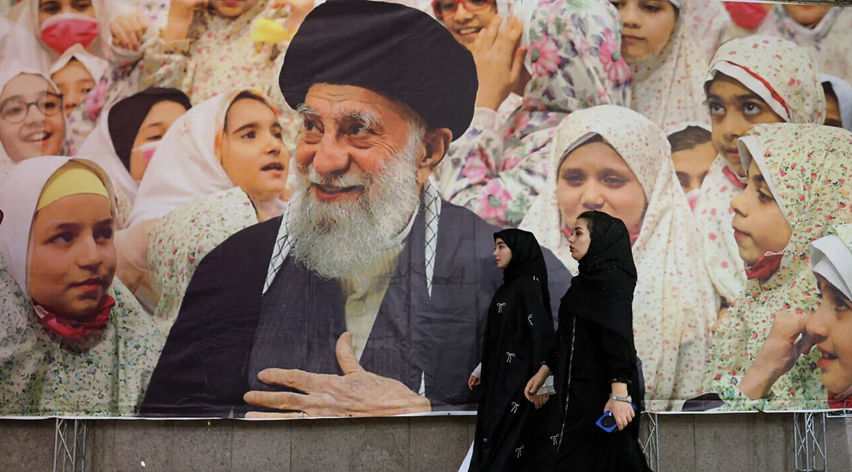Israeli soldiers are seen near the border with the Gaza Strip, August 5, 2022. Credit: Israel Defense Forces
Since the infamous biblical sin of the Twelve Spies, the ninth day of the Hebrew month of Av—Tisha B’Av—has been a day of national calamity for the Jewish people. For generations, we have been made to pay for this fundamental sin, in which the nation of Israel protested against entering the land of its heritage.
Here is the account of the Spies’ report to Moses and the Jewish people on the Land of Israel, as recorded in the Book of Numbers:
“We came to the land you sent us to; it does indeed flow with milk and honey, and this is its fruit. However, the people who inhabit the country are powerful, and the cities are fortified and very large; moreover, we saw the Anakites [Giants] there. Amalekites dwell in the Negeb region; Hittites, Jebusites and Amorites inhabit the hill country; and Canaanites dwell by the Sea and along the Jordan.”
Caleb hushed the people before Moses and said, “Let us by all means go up, and we shall gain possession of it, for we shall surely overcome it.”
But the other men who had gone up with him said, “We cannot attack that people, for it is stronger than we.”
Thus, they spread calumnies among the Israelites about the land they had scouted, saying, “The country that we traversed and scouted is one that devours its settlers. All the people that we saw in it are of great size. We saw the Nephilim there—the Anakites are part of the Nephilim—and we looked like grasshoppers to ourselves, and so we must have looked to them.”
The whole community broke into loud cries, and the people wept that night. All the Israelites railed against Moses and Aaron. “If only we had died in the land of Egypt,” the whole community shouted at them, “or if only we might die in this wilderness! Why is G-d taking us to that land to fall by the sword? Our wives and children will be carried off! It would be better for us to go back to Egypt!” And they said to one another, “Let us head back for Egypt.”
G-d punished the Jewish people by declaring that the entire generation of the Spies would die in the desert over a 40-year period of wandering. This punishment has played itself out over generations to this very day.
Tisha B’Av, our national day of mourning, is the anniversary of numerous calamities. Both the First and Second Holy Temples in Jerusalem were destroyed on that date, nearly 400 years apart.
Many other calamities befell the Jewish people on this date, including the declaration of the first crusade in 1095, the expulsion of Jews from England in 1290 and the banishment of Jews from Spain in 1492.
In the 20th century, Germany declared war on Russia in 1914, starting World War I. During the Holocaust, deportations to concentration camps began from the Warsaw Ghetto in 1942. The AMIA Jewish community center in Buenos Aires, Argentina was bombed by Iranian-backed terrorists in 1994.
On Tisha B’Av in 2005, the modern State of Israel closed off the 21 thriving Jewish communities in the Gaza Strip and declared the area a closed military zone. The expulsion of close to 10,000 Jews from Gush Katif and the unilateral Israeli withdrawal from the Gaza Strip, known as the “Disengagement,” concluded barely a week later.
The suburban Jewish towns in Gaza offered a high standard of living and economic opportunities to both Jews and Arabs, and provided Israel with a forward post from which to conduct targeted anti-terror operations.
Israeli Prime Minister Ariel Sharon, who rammed through the controversial plan, stated, “The purpose of the Disengagement Plan is to reduce terror as much as possible and grant Israeli citizens the maximum level of security. The process of disengagement will lead to an improvement in the quality of life and will help strengthen the Israeli economy. The Disengagement Plan is meant to grant maximum security and minimize friction between Israelis and Palestinians.”
Anything but maximum security has been achieved. Just a few months after the Disengagement, the terror organization Hamas took full political control of the Gaza Strip. Today, Hamas is considered a relatively moderate faction of Gaza’s numerous terror groups, outdone by the even-more-radical Palestinian Islamic Jihad (PIJ).
Fast forward 17 years, and approximately 30,000 rockets and mortars have been fired at Israeli population centers from the Gaza Strip.
In Aug. 2022, Israel launched Operation Breaking Dawn due to precise intelligence that PIJ was set to conduct a massive terror attack using anti-tank missiles against Israeli civilians living near the Gaza border. The IDF campaign began just moments before the start of Tisha B’Av.
In other words, Israel is still paying for the national sin of a disengagement that tore apart the Land of Israel, brought terror and rockets upon Israeli citizens and blocked upward mobility for Palestinians trapped inside the Strip without the economic opportunities that Israel can offer.
If anything positive has come out of the Gaza Disengagement, it is that further withdrawals are now considered just as unlikely to bring about peace. To the contrary, we now know for certain that they only bring further terror.
Souce: JNS



































